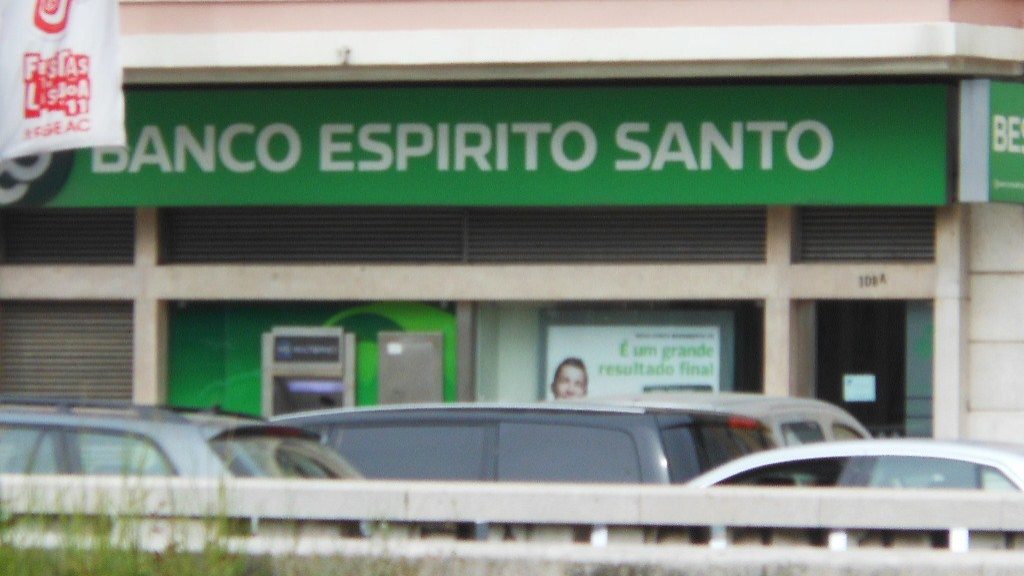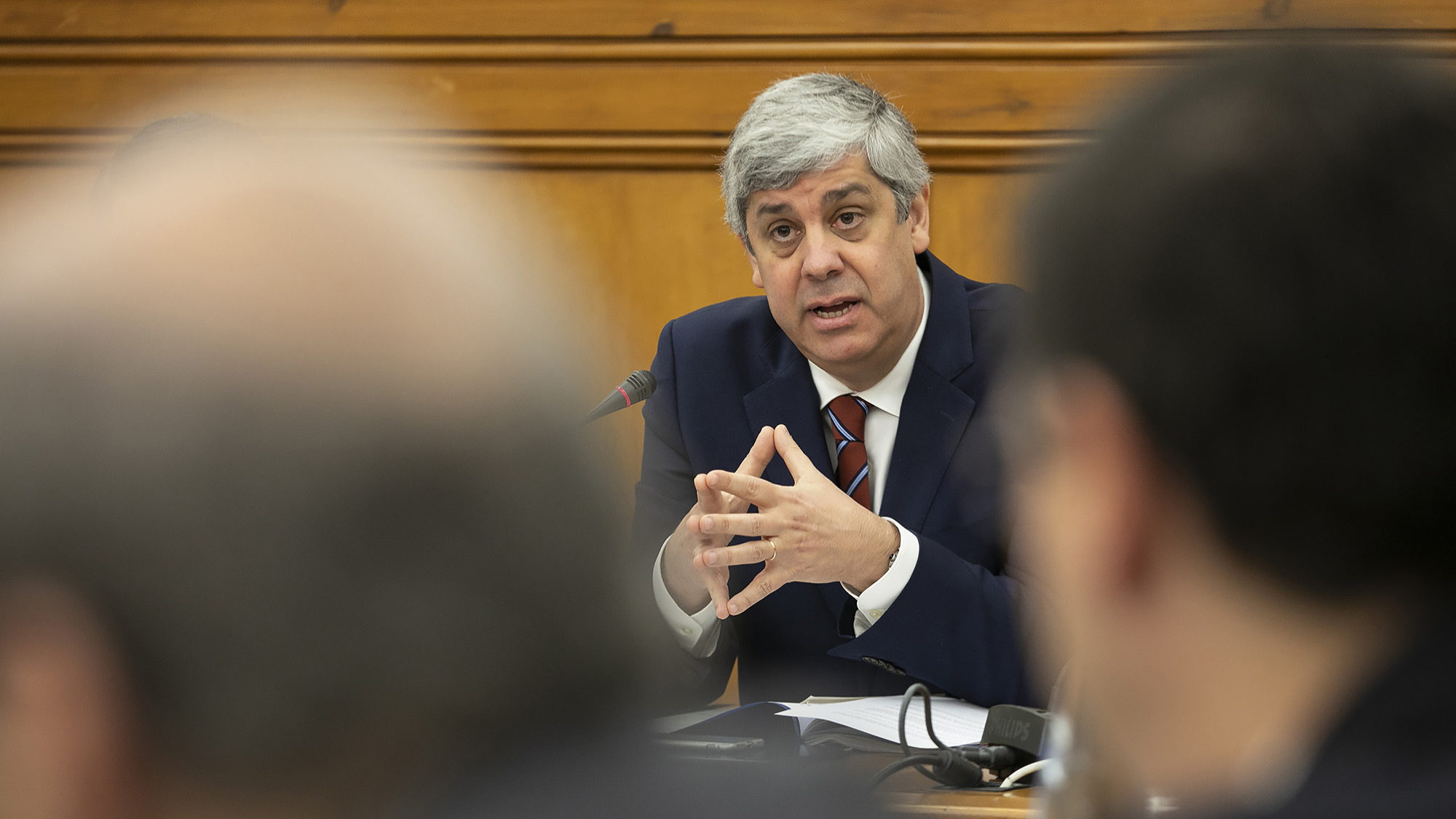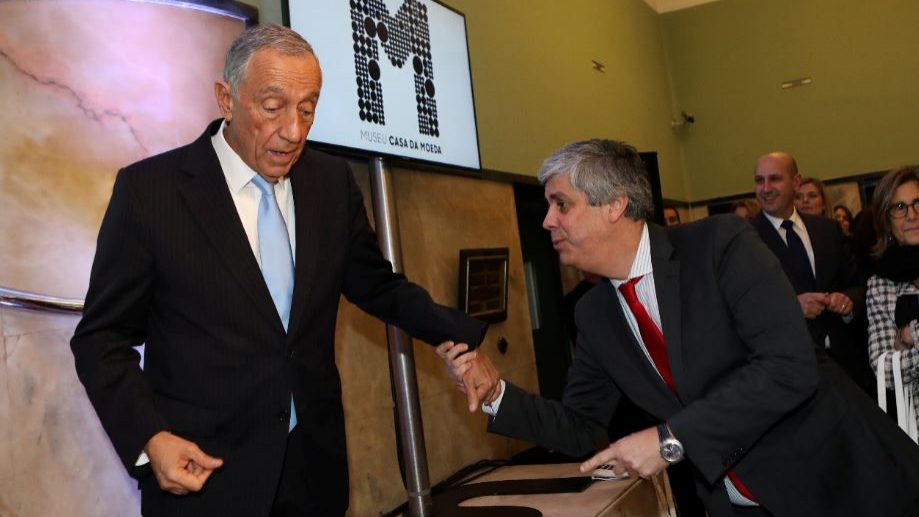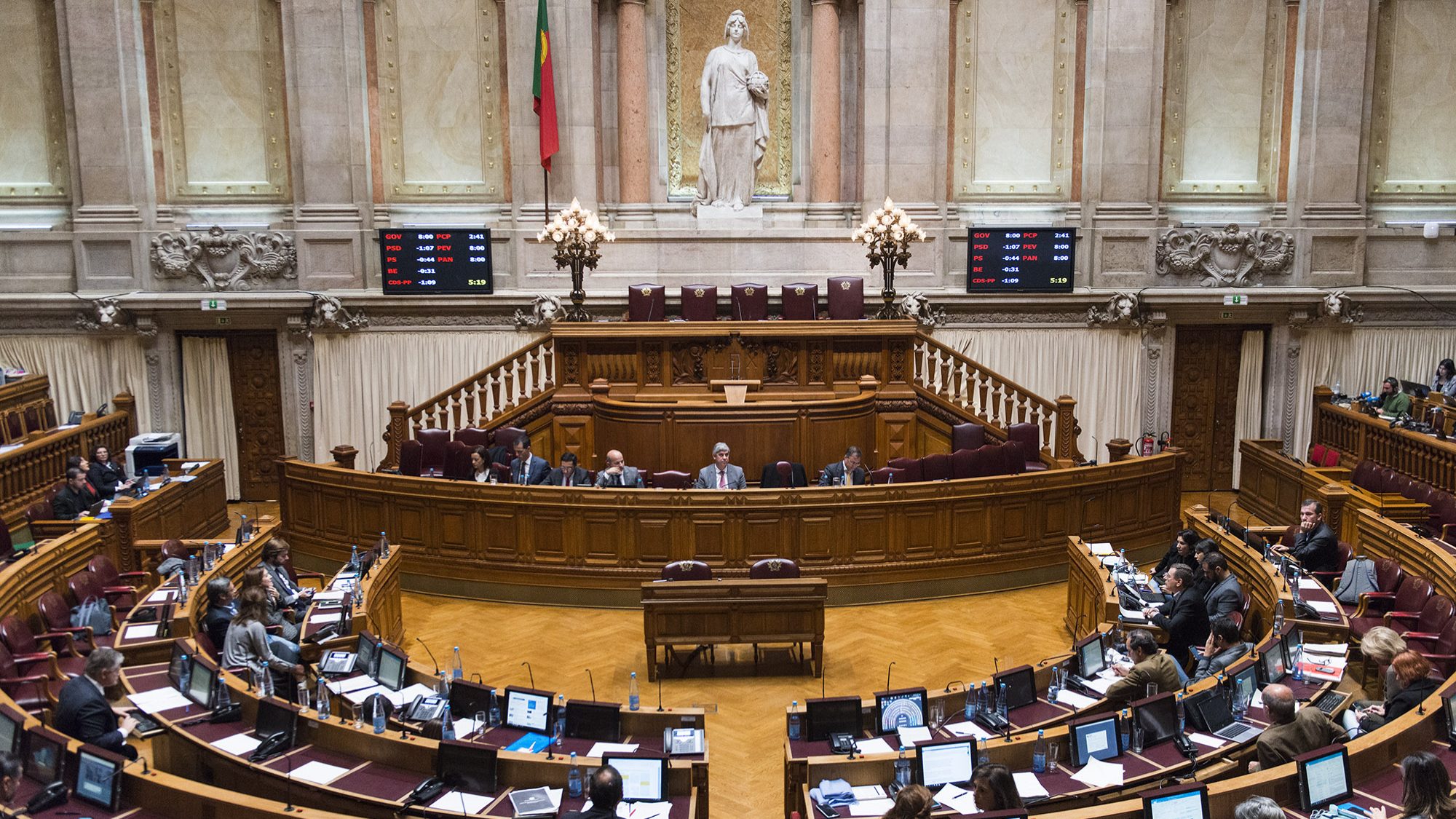Novo Banco’s audit has “exactly the same” aims as CGD’s audit, says finance minister
Centeno presented this Thursday the government's reasoning behind Novo Banco's audit and explained that it will follow exactly the same logic as CGD's audit, looking into credit concession decisions.
Portugal’s minister of finance, Mário Centeno, has told parliament this Thursday that the aims of a planned audit to Novo Banco’s loans inherited from Banco Espirito Santo (BES) are “exactly the same” as the audit carried out on state bank Caixa Geral de Depósitos.
“It is an audit of the range of assets and the granting of these credits, how they arose, their management within Banco Espirito Santo, from the moment they were created until the moment of resolution” of BES in 2014, said Centeno at a hearing on Thursday of the parliament’s committee on budget, finance and administrative modernisation.
In response to People’s Party (CDS-PP) deputy Cecilia Meireles, the minister said that, as with Caixa’s audit, this one was also meant “to ascertain … responsibilities” for the processes by which the loans were granted.
Centeno argued that the best way to dispel doubts about Novo Banco’s situation is “through an audit”, so that there is “nothing more hidden”.
Regarding the period which the audit of Novo Banco is to cover, the prime minister, António Costa, said on Thursday that it would focus on the phase preceding the winding up of BES, given that in the period that followed these matters were “directly conducted” by the Bank of Portugal.
“It is not for the government to supervise the Bank of Portugal, nor … to order an audit of it,” he explained. Questioned about the stance taken by Portugal’s president, Marcelo Rebelo de Sousa, that there should be an audit of the period “since the resolution [of BES] was determined”, Costa said he understood it but suggested that “perhaps a parliamentary committee of inquiry would be more appropriate to assess the performance of the Bank of Portugal in this process.”
On Friday, Novo Banco reported losses of €1.412 billion in 2018 and also its intention of requesting a fresh injection of capital from the banking sector’s Resolution Fund, under the agreement that was negotiated when a controlling stake in the bank was sold to US venture capital fund Lone Star in October 2017. Following the request, the Ministry of Finance announced that an audit would be held to scrutinise the process by which loans were granted.
The Resolution Fund, meanwhile, announced that it would seek a fresh loan from the state, whose annual limit is €850 million, to enable it to fund Novo Banco, pending the legal certification of the bank’s accounts and independent verification of the amount to be paid by the fund.
The €1.149 million is on top of the injection of €792 million to cover 2017 losses and is well above the €400 million that Centeno had said were included in the projected public sector deficit for 2019.
The Ministry of Finance on Tuesday told Lusa that the capital injection in Novo Banco should not jeopardise the 2019 deficit target of 0.2% of gross domestic product, since the amount has not been decided and the deficit will benefit from the current surplus in 2018 and the recovery of a guarantee it gave to BPP, another bank rescued by the state.




